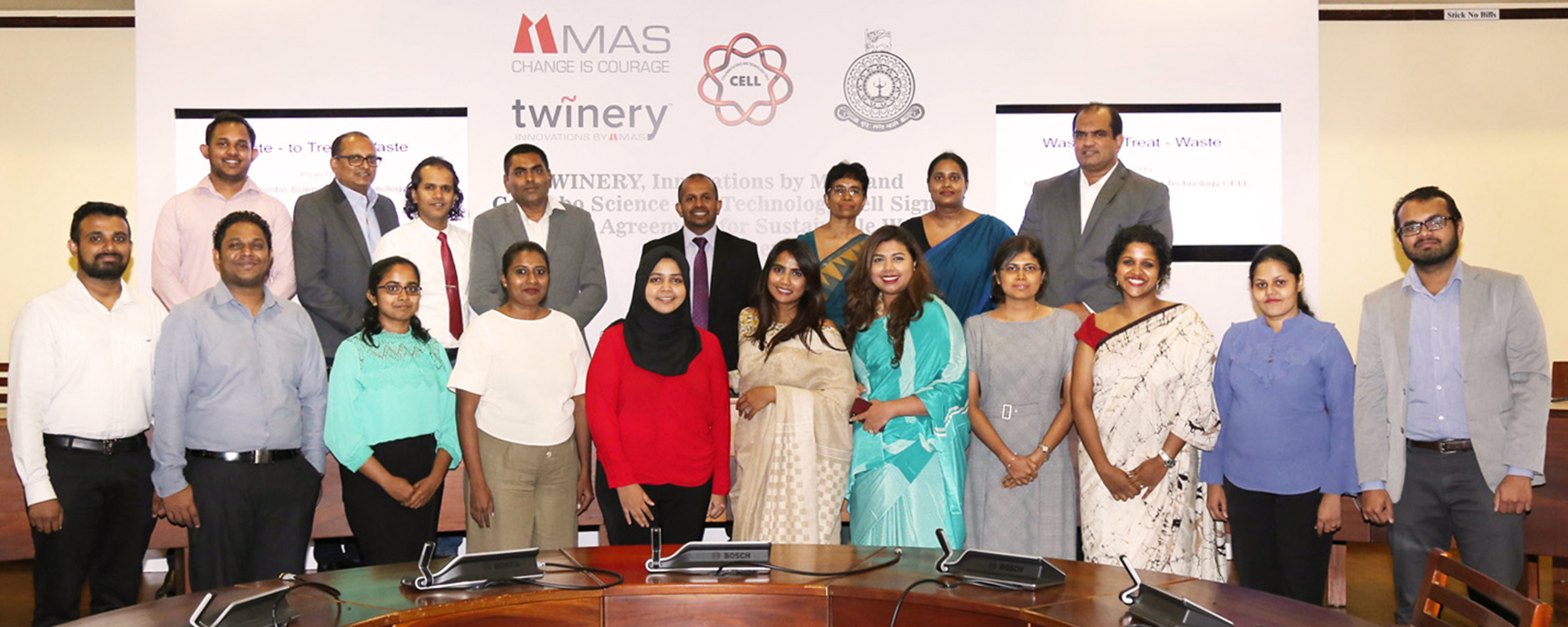October 24, 2019
Twinery has partnered with Colombo University to provide a wastewater treatment solution.
Although we at the Twinery are more commonly recognized abroad as champions for Sri Lankan innovation, we are also committed to nurturing homegrown R&D. Such was the case with our recent partnership with the Colombo Science and Technology Cell of the University of Colombo, which will spearhead the adoption of a wholly new, locally developed wastewater treatment solution at MAS Fabric Park in Thulhiriya.
Today, costly materials are imported by textile manufacturers to treat their wastewater in line with international quality standards. At the same time, upwards of Rs.30,000 per tonne is spent on the disposal of aluminium waste at local incineration facilities.
The Colombo University Twinery project provides a novel solutions to both of these problems, creating a new filter technology based on aluminium waste that treats wastewater in the textile industry.
Elaborating further, Dr. Dilushan Jayasundera, Principal Investigator of the project, and Senior Lecturer (Physics) of the University of Colombo, revealed, “It all began when Twinery, and the Colombo Science and Technology Cell of the University of Colombo teamed up to find a solution to find a cheaper, environmentally sound process for treating waste-water in the textile industry. The idea was to convert sludge from the aluminium industry as a filter material to treat the waste-water from the apparel industry. The proof of concept for the technology was developed through a series of undergraduate research projects with minimal funding of Rupees 16,000 in the department of Physics. Even though this was an undergraduate research, the outcome was impactful.” The project was further funded by Twinery to co-develop the research into a scalable solution.
The research was supported by Dr. Dilushan Jayasundera, Dr. Shashiprabha Vithanarachchi, Ms. Shalika Meedin and a team which included Ms. Kushani Hettiarachchi, Mr. Kasun Sankalpa (from UOC, Cell) and Mr. Ranil Vitarana, Mrs. Sarah Dole and Mr. Harsha Deraniyagala (from MAS).
Also commenting. Ranil Vitarana, Chief Innovation Officer at MAS Holdings, stated, “This is a homegrown sustainable solution for wastewater treatment with far-reaching environmental, industrial and economic benefits for both the textile and aluminium industries as it has the potential to eliminate solid waste from the aluminium industry that would have otherwise been disposed and is instead converted to a wastewater treatment material and eliminates the importation of other wastewater treatment material.”
Following the successful completion of the first, experimental deployment of this technology at the MAS Fabric Park, Twinery will push for an industry-wide adoption of this new technology among local textile producers. This, we anticipate, could result in US$ 1 million in immediate foreign exchange savings for our country, and maybe even much, much more if applied across the entire spectrum of industries utilizing wastewater treatment at industrial zones in Sri Lanka.
In fact, it is projected that MAS alone will save an estimated US$ 320,000 per year in import costs for wastewater treatment materials following the roll out of this technology across its 40 plus factories in Sri Lanka.


